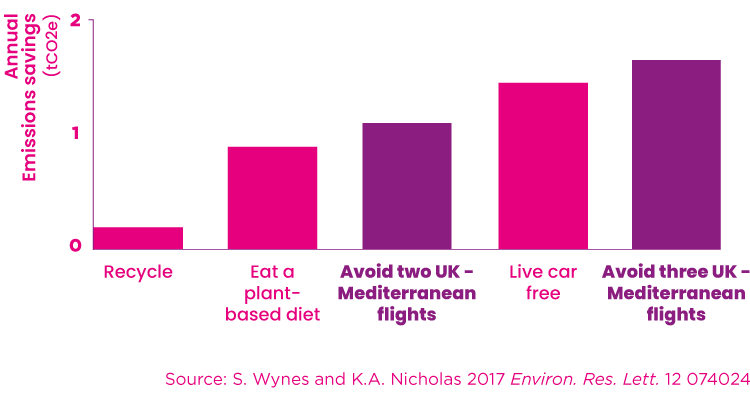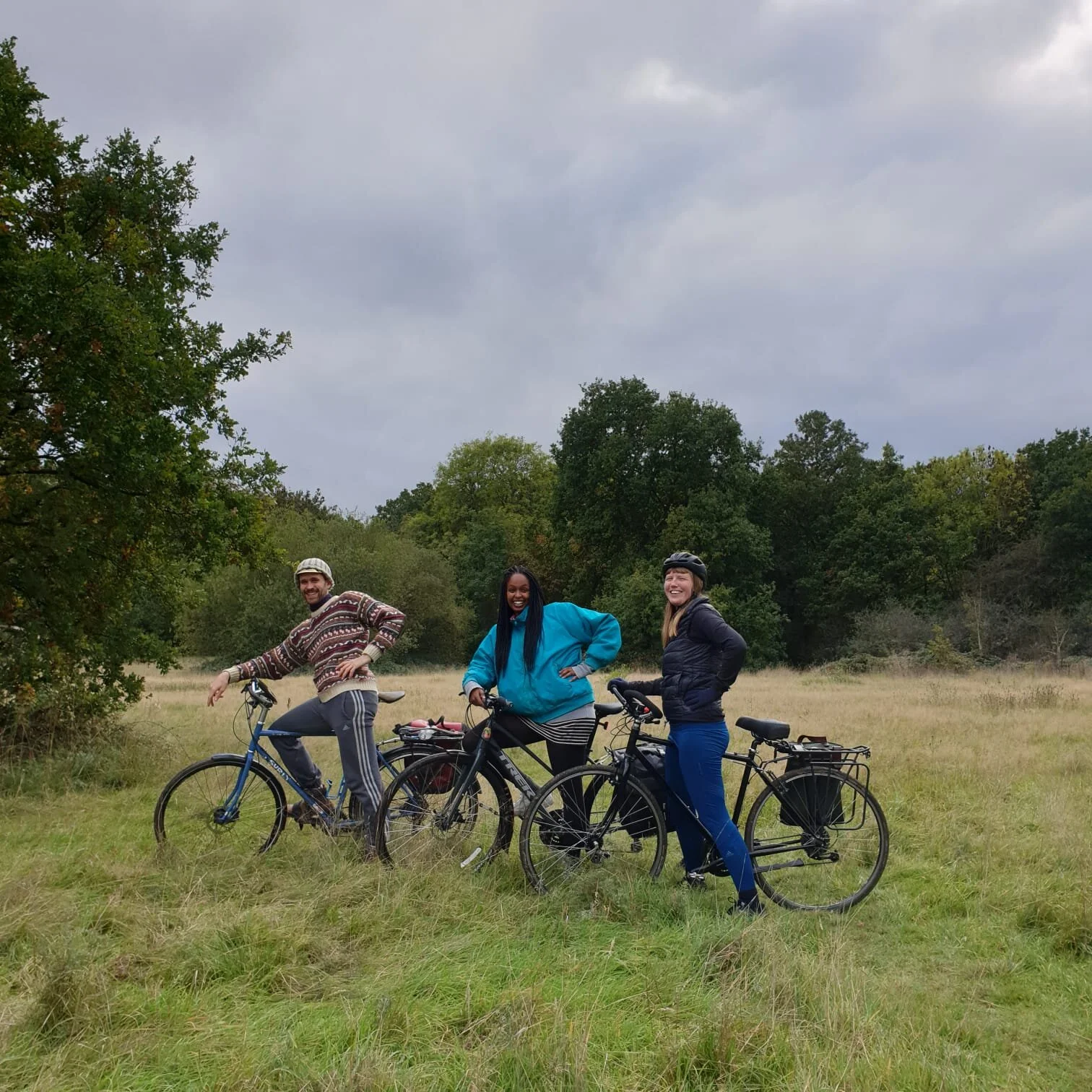Why you should swap plane travel for train travel
A recent opinion poll showed that two thirds of us would be willing to make a personal sacrifice for the climate if we knew others were doing the same.
But there’s still one area of carbon cutting behaviour that even some people within the climate movement struggle to talk about: not flying.
Flying has become completely normalised amongst groups with disposable income, being the go-to option for travelling abroad, and astonishingly (but falsely) cheap ticket prices leave little wonder as to why hitting the skies is our fastest growing source of carbon emissions.
Without a line-up of low-carbon planes waiting in the wings, cutting our emissions from flying must come from reducing demand.
Despite the conveniences of flying, there is a lot to be said for staying grounded and opting for our favourite land-based travel options. Here are some of our top reasons.
1. High impact carbon reduction
Estimates suggest only five percent of the world’s population have ever flown. Government data shows that even within the UK 70 percent of all flights are taken by just 15 percent of Brits.
These ‘frequent flyers’ are more likely to be professionals with disposable income who can afford to take multiple flights a year.
If you are one of the people who take multiple flights a year, when it comes to taking personal action on climate change, there is scarcely any other single act more effective at cutting carbon than avoiding a flight.
Defying gravity through air travel produces a huge amount of greenhouse gas emissions. So much so that taking eight return trips from London to Berlin on the train produces the same amount of carbon as a single flight from the UK to the German capital.
Even being vegan for a whole year wouldn’t save you as much carbon as if you were to avoid taking a return plane ride to the Mediteranean from the UK. If you’re serious about cutting carbon, reducing or stopping flying is a must.
2. Travel more
With the speed and high-flying nature of planes, you miss an awful lot, and often end up in airports on the outskirts of cities. The train on the other hand, means that you are connected at every phase of your journey, with a whole lot more at your fingertips.
Be Connected.
Train stations, as opposed to airports, tend to be in city centres meaning that minutes after pulling into your destination, you can be enjoying the hubbub of a new city, or hop on to local transport and watch the scenery change as you leave the enter into new landscapes.
Take multiple stops.
Experiencing different cultures, tasting different cuisines and basking in varied scenery becomes very easy once you start taking the train.
A trip from London to the breath-taking Lake Como in Northern Italy can involve a few days meandering around Paris, sipping on wine and visiting art galleries, another couple trialling the show-stopping pasta dishes of Milan, followed by the relaxing and serene views of Italy’s Lake region.
And this is all without paying extra travel costs or going out of your way at all. Flying less means travelling more.
Explore new destinations.
Naturally, the destinations that are realistic to travel to become quite different once we rule out flying and there’s lots of fun to be had in embracing this change.
Instead of jetting off to Turkey, how about exploring some of Britain’s breath-taking national parks with visits to cosy pubs, walks across the moors and wild swimming in the river?
Or plan an interrailing trip around a European country, giving you the opportunity to to soak up the feeling of the country as a whole, rather than just one spot. Enjoy cosmopolitan Milan, the wonders of Florence and Rome and the beautiful coastlines and mountainous regions? Moving to low-carbon travel can force you to consider trips which may not have crossed your mind but turn out to be the most memorable.
3. Enjoy the journey
“When I am on a journey, all ties suddenly fall away. I feel myself quite unburdened, disconnected, free – There is something in it marvellously uplifting and invigorating” - Stefan Sweig
With the launch of the new Caledonian Sleeper and the London to Amsterdam Eurostar in the last year, slow travel with an emphasis on the journey as well as the destination, is set to become easier. Sit back and enjoy the ride.
Europe is blessed with some of the best transport networks in the world, with several world-class high speed rail networks and a host of organisations, like Seat 61, dedicated to help you plan and book your journeys.
Clean travel is a chance to rediscover the magic of the journey - whether that’s winding through stunning scenery in the alps or waking up after a night journey in the heart of a new city.
You are suddenly blessed with hours to watch the world go by undisturbed. The perfect opportunity to welly into that classic novel you’ve always wanted to read, read up on the best hidden spots of your destination or, if you have a travel companion, have a good old natter.
Travelling slowly can provide valuable time for reflection, to be present with yourself and your surroundings, rather than simply waiting for a journey to end.
After all, taking action on climate change isn’t about having less of what you want, but rather more of what you need. Staying grounded really is the best way to stay grounded.
Wish you had more time for slow travel? Get your workplace signed up to Climate Perks.








